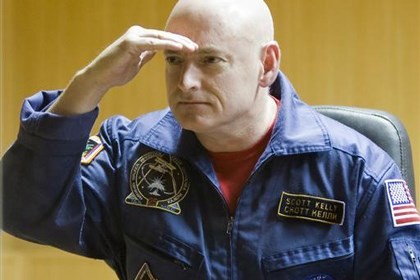NASA Astronaut Scott Kelly will ride a spacecraft today to the International Space Station (ISS), to complete a one-year space mission. Humans are now planning to follow robots and unmanned spacecraft into deep space.
Kelly's trip aboard the Russian spacecraft Soyuz is the first time humans have left "low-Earth" orbit since 1972. That is when astronauts last landed on the Moon.
Scott will be participating in a study that observes how living in outer space affects his body. Meanwhile, his twin brother Mark will remain on Earth to function as the experiment's control group, according to Space.
Robots are already exploring dwarf planets, asteroids, and comets throughout our solar system. The cheap, durable, and unemotional robots provide several benefits in space exploration.
Robots and spacecraft are currently scattered throughout the solar system. Dawn is on the dwarf planet Ceres, Rosetta is circling a comet, and New Horizons is scheduled to visit Jupiter next summer, according to Wired.
There have been several other unmanned missions beyond the recent past. Curiosity and Opportunity have been exploring Mars for several years, Cassini has been examining Saturn's system for over a decade, and Messenger is wrapping up its mission at Mercury.
While the robots and spacecraft in deep space have transmitted crucial data to humans, manned missions in outer space have been more ideological than scientific.
For example, NASA's Apollo space program was about the U.S. beating the Soviet Union to the Moon. After it retired all of its space shuttles in 2011, astronauts had no way to get a lift to outer space.
Private companies such as Boeing, Lockheed Martin, and SpaceX are trying to become a substitute. However, John Logsdon at George Washington says that human space flight is now a "sideshow." A few companies are just developing a taxi to the ISS.
However, the human space program does seem to have objectives. They involve science, inspiration and "survival," according to a 2014 National Research Council report.
The truth is that NASA currently lacks the funds for a manned mission to Mars. However, what it is learning from the Kelly brothers' ISS experiment could one day benefit humankind.



























